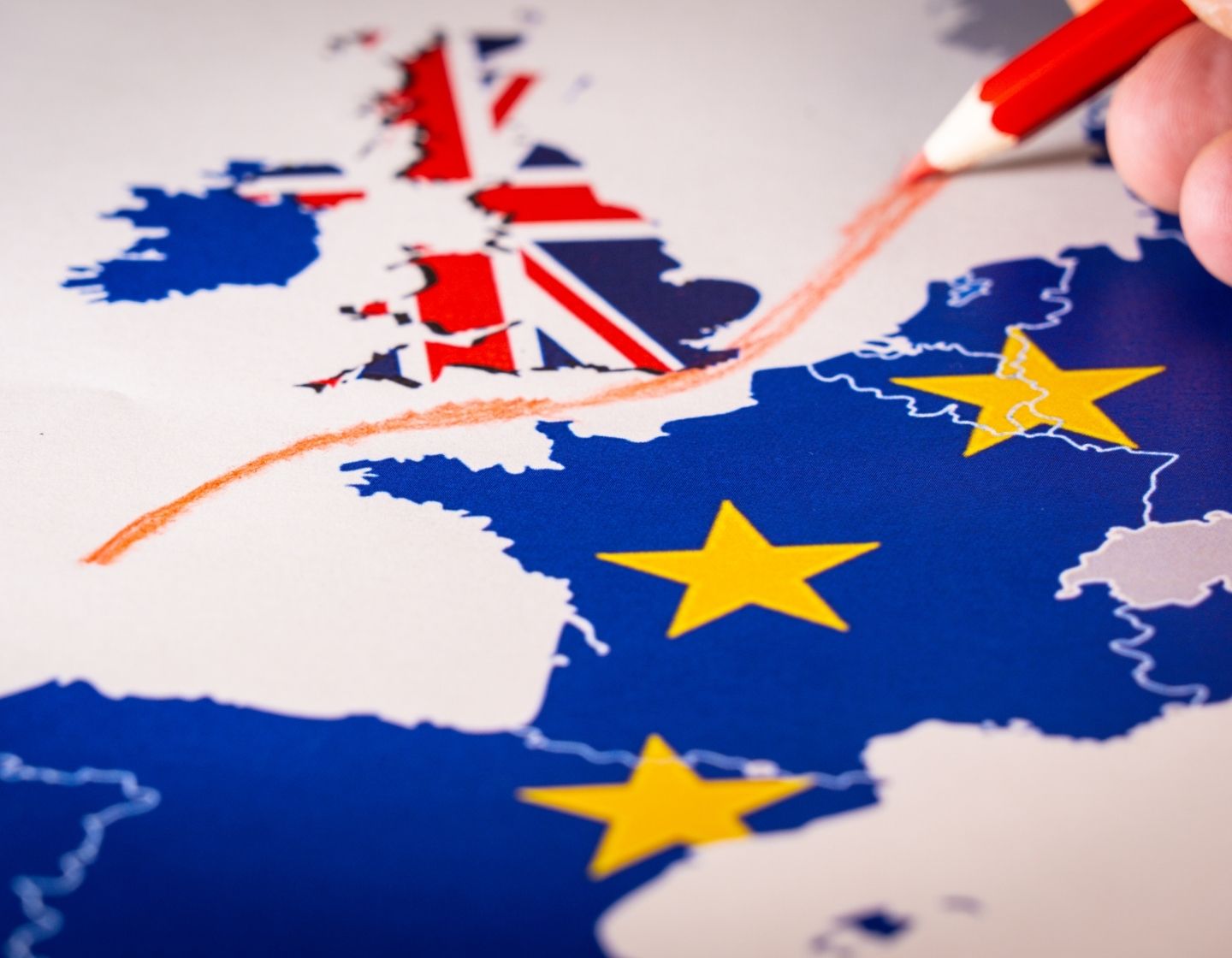How will Brexit impact the UK’s goal to achieve net zero carbon emissions by 2050?
What is the 2050 Net Zero target?
The Net Zero target was created in 2019 and binds the UK to cut greenhouse gas emissions to 100% below 1990 levels by 2050. Effectively, there will be a balance between the greenhouse gases we produce and remove.
The target built on the Climate Change Act 2008 that had committed the UK to reducing greenhouse gas emissions to 80% below 1990 levels with the government mandated to set carbon budgets with caps on the total greenhouse gas emissions allowed.
In 2015, the Paris Agreement amplified this goal by limiting global warming to temperatures below 2°C, preferably 1.5°C, compared to pre-industrial levels.
The agreement spurred the UK government to set the Net Zero target, with encouraging early successes. For example, we experienced a record-breaking 11% fall in greenhouse gas emissions in 2020, although the economic slowdown caused by the pandemic played a significant role..
At the same time, it’s also true that the EU has been a key player in the development of climate change legislation, and so leaving the EU could have many implications.

The Climate Change Committee’s response to Brexit
The Climate Change Committee (CCC) was established in 2008 to advise and prepare governments for climate change and in 2016 published a report on the implications of Brexit for UK climate policy. The CCC believes that current policies will eliminate around half of the required emissions, therefore the UK must create new policies and build on strong pre-existing policies to meet the Net Zero target.
The EU and the UK both play key roles in managing climate change. Around 80% of the UK’s environmental legislation comes from Europe. EU policies such as the renewable energy directive and the waste and landfill directive have helped to reduce emissions while the UK has created effective carbon-reduction policies such as the carbon floor price and incentives for electrical vehicles and infrastructure.
The 2016 CCC report classified policies as either “low-risk” or “at-risk”. Low-risk policies were those which were already in place with sufficient funding, accounting for roughly 25% of emissions reductions targets while at-risk policies accounting for around 30% of emissions had either design, delivery or funding problems. The remaining 45% were referred to as the “policy gap”, with no plans in place to reduce emissions.
This signals that the UK government is yet to properly address the steps they are making to reduce emissions outside of the EU regulatory frameworks. It is hoped that the COP26, to be hosted in Glasgow this year, will be an opportunity to properly structure the fight against climate change.
However, the report emphasised that the decision to leave the EU does not change the UK’s commitments to reduce greenhouse gas emissions, particularly the Net Zero target. It stipulated that the EU legislation working so effectively, such as vehicle efficiency standards and energy-efficient product standards and labelling, should be continued (or improved) in the UK.
The CCC also noted that Brexit is an opportunity for the UK to work towards improving the existing EU policies. For example, the Common Agricultural Policy (CAP) fails to directly target greenhouse gas emissions, although it provides funding for afforestation.

What will Brexit mean for the UK’s carbon reduction targets?
How Brexit impacts energy in the UK is a big concern for many people. We receive around 12% of our gas and 5% of our electricity from Europe. The Brexit deal ensures a continued link between EU access to British waters and UK access to the EU electrical grid and gas network, until the transitional period ends in 2026. From then, there will be annual negotiations about how the relationship will continue.
In basic terms, this means that nothing has changed in terms of how we access electricity and gas. However, the i newspaper reported that it seems likely that if we ban or restrict EU boats in UK waters (after 2026), then our access to EU energy will also end. Bloomberg further reported that this could cost us billions more per year.
There are also concerns as to how the importing of goods will impact carbon emissions. But it is too early to be sure exactly how Brexit will affect the UK.
The BBC has reported that the Brexit deal reaffirms the UK’s position on climate change, aiming for the Net Zero target in 2050, which is “the first trade agreement ever to feature climate targets in this way”. The inclusion of climate change reinforces the UK’s ambition and makes it a priority issue.
Furthermore, Forbes reported that Brexit could actually make it easier to reach the Net Zero target as it will no longer be weighed down by other countries, particularly ones that depend on coal.

How is Boris Johnson tackling climate change?
In February, Boris Johnson was the first UK Prime Minister since 1992 to chair the UN session on climate and security. He claimed that climate change “is a threat to our security” and highlighted the measures that the UK was taking to reduce emissions. However, his words were heavily criticized, because they were not matched by actions.
According to the BBC, a Greenpeace spokesperson accused the PM of “weapons-grade hypocrisy” by permitting a new coal mine in Cumbria while criticising other countries for their coal use. The consultation over the mine continues.
Despite the PM’’s Ten Point Plan announced last November, which included wind power generation, pledges to plant more trees and attempts to find sustainable ways to store carbon, many environmentalists believe that he is failing to follow up with the actions to reach the Net Zero target.
It is hoped that this will change at COP26.

What can I do right now to reduce emissions?
You don’t have to wait for policies to change before making positive changes yourself.
The small actions of individuals can make big positive changes to the planet – all we have to do is reduce our waste.
Luckily, there are loads of ways to reduce emissions in your home without making any drastic changes! The average person in the UK uses 143 litres a day. By simply turning off the taps while we brush our teeth, saves 12 litres. Similarly, washing your clothes on a cooler cycle of 30°C can reduce your energy bills by 46%.
Read our full list of tips for reducing water consumption at home.